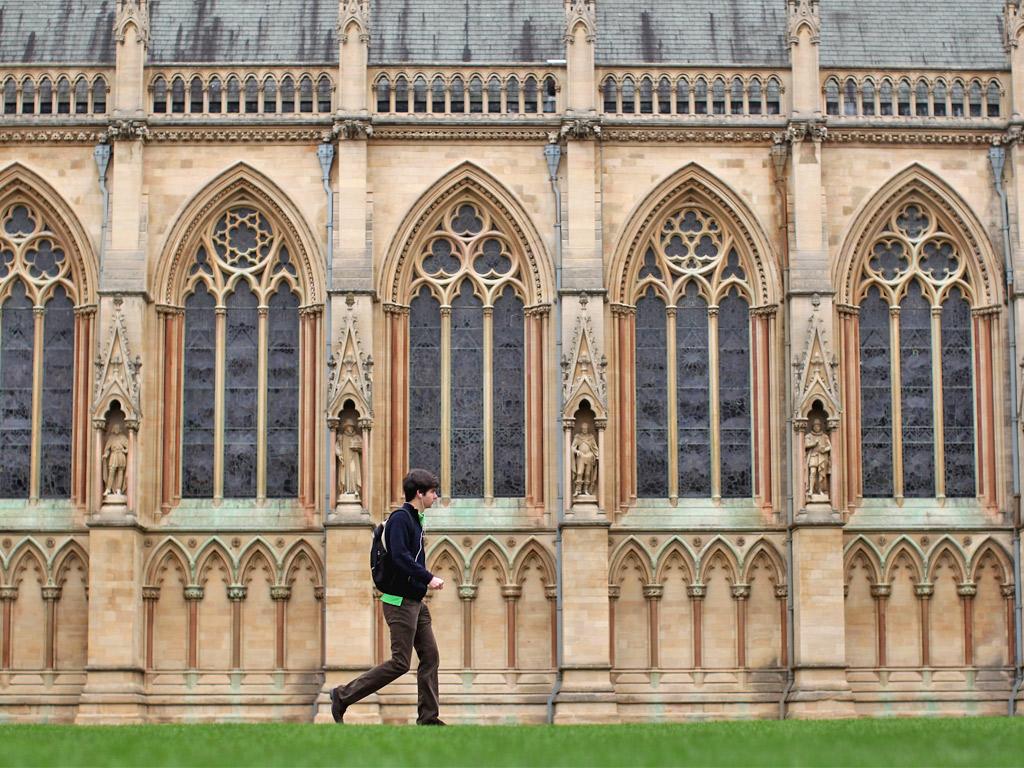Oxbridge applications stay high as students demand better value
Figures suggest that £9,000 fees have shifted interest away from less selective institutions

Your support helps us to tell the story
From reproductive rights to climate change to Big Tech, The Independent is on the ground when the story is developing. Whether it's investigating the financials of Elon Musk's pro-Trump PAC or producing our latest documentary, 'The A Word', which shines a light on the American women fighting for reproductive rights, we know how important it is to parse out the facts from the messaging.
At such a critical moment in US history, we need reporters on the ground. Your donation allows us to keep sending journalists to speak to both sides of the story.
The Independent is trusted by Americans across the entire political spectrum. And unlike many other quality news outlets, we choose not to lock Americans out of our reporting and analysis with paywalls. We believe quality journalism should be available to everyone, paid for by those who can afford it.
Your support makes all the difference.Tuition fees of up to £9,000 have made students more demanding about the quality of their education, according to figures showing a rise in applications to Cambridge at the expense of less selective universities.
Figures from Cambridge University show a 3 per cent increase in applications from state school pupils this year – bucking the national trend for university applications which have seen a 10 per cent decline.
The statistics indicate that in the first year of the £9,000 cap on fees, students are increasingly concerned about value for money.
As one Cambridge source put it: "It seems the message is – if you've got to pay £9,000, why not go for the best?"
Overall, Cambridge applications have gone up by 2 per cent this year to 15,675. The biggest rises are among overseas students (12 per cent) and state school students (3 per cent).
Applications from the UK as a whole are almost unchanged, while those from students in the EU, who have to pay the same fees as UK students, have slumped by 7 per cent.
At Oxford, there has been a slight decline of less than 3 per cent in all categories, which, again is much less than the average drop for the UK. The number of UK applicants offered places, though, has risen slightly – from 2,862 to 2,898.
The figures will be welcomed by ministers as a vindication of their new fees regime. Only last week, the Universities minister, David Willetts, spoke of his determination to ensure that no student was put off going to university on the grounds of cost.
The upshot, though, is that competition for places at Oxbridge is as competitive as ever, with about 12,000 students expected to get A* passes at A-level still being rejected by the two universities.
Professor Alan Smithers, the director of the Centre for Education and Employment at Buckingham University, said the reasons for Oxbridge's success in attracting applications "may be a bit complicated" – many students may now be thinking "why not?" in terms of applying to Oxbridge, now that fees have soared.
"I think there have been serious attempts to get students applying from a wider range of schools and I think this must have had an effect," he said. "Also, people who had a reasonable chance of getting into Oxbridge have continued to apply whereas, across the system generally, people were getting on a conveyor belt and thinking it was good to go to university no matter which course or which university they applied to.
"Now they're making a substantial contribution, which is actually repayable through their taxes, I think they're thinking much more seriously about the value of their courses and that's not an issue that's necessarily driven them before."
A spokesman for Cambridge University said: "We believe that these figures represent the University of Cambridge's long-standing commitment to recruiting the ablest and best qualified students with the greatest academic potential from every background.
Many students will be eligible for bursaries of up to £3,500 a year while fee waivers of £6,000 a year are available under a national scholarship scheme aimed at helping students from poorer backgrounds.
Meanwhile, four universities have officially joined the Russell Group – which represent the UK's leading higher education research institutions, bringing the total membership to 24. They are Durham, Exeter, York and Queen Mary, London.
Join our commenting forum
Join thought-provoking conversations, follow other Independent readers and see their replies
Comments